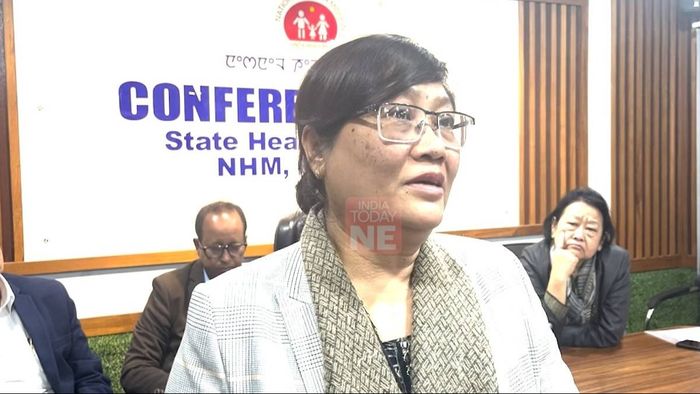Manipur takes proactive steps to address climate change impact on public health
This initiative falls under the ambit of the National Programme on Climate Change and Human Health (NPCCHH), which was launched in 2019 with the aim of addressing the intricate relationship between climate change and human health.

- Feb 22, 2024,
- Updated Feb 22, 2024, 6:35 PM IST
To tackle the growing threat of climate change on public health, the Directorate of Health Services and the National Health Mission (NHM), under the government of Manipur, issued a crucial health advisory on February 22. The advisory, released at the conference hall of NHM, Manipur, underlined the urgent need to mitigate the health risks posed by climate change, particularly with the onset of the summer season.
This initiative falls under the ambit of the National Programme on Climate Change and Human Health (NPCCHH), which was launched in 2019 with the aim of addressing the intricate relationship between climate change and human health.
Dr. Y Niveda, the nodal officer of NPCCHH, emphasized the widespread impact of climate change on human health, noting that it poses a direct and indirect threat not only to flora and fauna but also to human well-being. Highlighting the escalating instances of vector-borne diseases in the state as a consequence of climate change, Dr. Niveda stressed the importance of proactive measures to combat these emerging health challenges.
Despite Manipur not being classified among the 23 states and union territories identified as heat-prone areas, and with the current air quality index in the state still within the normal range, Dr. Niveda cautioned against complacency. She urged vigilance and emphasized the need to address climate change-related health issues proactively.
As part of the efforts to assess and mitigate the health impacts of climate change, the Health Directorate has selected eight hospitals in the state to report on air pollution-related diseases. Additionally, plans are underway to designate certain hospitals to monitor and report cases of heat-related illnesses. To facilitate these initiatives, training programs for health staff from various districts have been initiated.
Dr. Niveda also outlined a series of advisories aimed at minimizing the health risks associated with climate change. These include staying hydrated, minimizing outdoor exposure, avoiding leaving children or pets in parked vehicles, abstaining from alcohol and caffeine, and promoting the use of cleaner fuels such as CNG. Strategies to address air pollution-related illnesses include advocating for cleaner fuels, promoting tree planting initiatives, ensuring proper ventilation in classrooms, and adopting measures to improve indoor air quality.